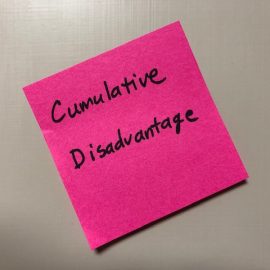
You have heard of executive coaching and are considering hiring a coach. Or maybe your boss wants to find one to work with you. Or maybe you are responsible for setting up a coaching engagement for someone else.
You’ve heard that an executive coach can help accelerate your career.
But you have questions. So many questions…
Let’s start with the basics.
What is coaching?
Through coaching you can move from where you are to where you want to be.
Coaching is a process in which a coach helps a client tackle an issue or develop skills. It often involves one coach working with one client, but it can also involve groups.
The International Coach Federation (ICF), a training and regulatory organization for professional coaches, defines coaching as:
“…partnering with clients in a thought-provoking and creative process that inspires them to maximize their personal and professional potential”.
What types of coaching are there?
As stated in the definition, coaching is a process. The process applies to many different topic areas.

The Houston Chapter of ICF offers a good description of many of these types of coaching here. Some common coaching types:
- Executive coaching – working with executives on topics such as leadership skills, solving a behavior problem, transitioning in to new roles, managing change, managing other people
- Career coaching – working with people on topics such as identifying career interests and skills, planning a career path and finding new job opportunities
- Business coaching – working with business owners on topics such as setting goals, prioritizing, diagnosing business issues and creating strategy
- Skills/ performance coaching – working with a person on a specific skill such as presentation skills and public speaking
- Life coaching – working with people of any type and age on topics such as setting personal goals, creating a more fulfilled life, and finding balance
What coaching is not
The biggest things that coaching is NOT is that coaching is not about telling you what to do. A coach should support you as you find the answers.
Some important things that coaching is NOT:
- Not therapy – coaching operates with a specific focus and concentrates on what is happening now and planning for the future. Most coaches are not trained therapists. They will not help you analyze your childhood or unwrap traumas. If deep psychological issues arise in coaching, the coach should refer you to a trained therapist.
- Not a consultant – many coaches also have expertise in business areas like HR, finance, supply chain, sales, etc. But the coaching engagement concentrates on the client – not on the business processes. Let’s say your coach has a background in supply chain management. In your coaching session, you might share an example of a frustrating interaction with your transportation manager. Your coach will ask questions about the interaction to help you find more effective ways to communicate – the coach won’t tell you how to fix your transportation issues.
- Not de facto management – companies should not bring in a coach and expect her to be a de facto manager. The coach is not there to fix a project timeline or organize the work of the team. Coaches should also not be asked to provide feedback that the actual boss does not want to give. Coaches should build on feedback that the boss has already given and use it to define the goals of the engagement. Coaches do not replace the client’s day-to-day manager by coming in to have the tough conversations.
How is executive coaching different from coaching from my boss?
Many companies use the term ‘coaching’ to describe the feedback that leaders give to their direct reports. Performance feedback from leaders shares a lot with coaching from a professional coach. They both involve conversations, discussions about feedback and thoughts for improvement.
Personally, I believe that all leaders of people should go through formal coaching training (like that provide by ICF) to improve their skills in working with their teams.
How your boss coaches

The difference between an external coach and your boss as a coach is mostly about scope, cadence and context. Your boss works with you on a daily basis and hopefully provides frequent communication. Some of your interactions involve coaching-style feedback, questions and observation.
But many of your interactions are more routine and focused on goals and processes. And, of course, your boss has the power to hire and fire and give performance reviews and raises.
How a professional coach coaches

Professional coaches focus much more narrowly. They are engaged to work with you on a specific issue. Communication comes at regular planned intervals. The coach asks powerful questions, guides exploration and provides observations.
With an external coach, the conversations are confidential and centered on the you. Confidentiality promotes trust and a makes the coach a safe sounding board. Finally, the relationship is not complicated by organizational hierarchy, politics or other issues.
What does an executive coaching engagement look like?
Every coaching engagement is different. The three phases below describe how an executive coaching engagement might flow. The assumption here is that a company contracted with the coach to work with the client, so the company is also involved in the process.
Phase 1: Getting started
As a client, your first step is to decide that you want a coach and have a general idea of the topic for your coaching. Once you identify your need, you know what type of coach to seek.

I recommend that you contact 2-3 executive coaches and hold a screening call with each one. Choose the coach who can help with your issue. But also consider the coaches style and the connection you feel. You want to choose the coach who you will trust and enjoy working with – who will also challenge you as needed.
Once you choose your coach, the company will sign contract and agreements. The contracting phase is often handled by someone from HR or Talent Management.
Phase 2: Coaching engagement
The coaching engagement will likely be for a period of 3-6 months. During that time you will have regularly scheduled sessions with the coach. Often the first session is held in person to build rapport and set expectations. Most of the other sessions will occur over the phone or through video conferencing.

Engagements might include assessments on work style and personality or 360 feedback. Executive coaches will often interview the client’s boss, peers and direct reports to create a verbal 360. This information informs the sessions and identifies needed behavior changes.
Please note, in this example, the company contracted the coach. In these cases, the client’s boss and HR are generally informed about progress and given an overview of the issues being addressed. However, the discussions from the actual client sessions remain confidential and are not shared with the boss or HR.
Phase 3: Wrap up
Coaching engagements are intended to have a clear completion date. Sometimes the date is extended if additional time is needed. But coaching should provide the ability for the client to learn and to sustain new behaviors and skills without ongoing support. The wrap up includes a final debrief with both the client and the client’s boss.
Are you coachable?

If you are considering a coach (or considering hiring one for someone else), you must first determine whether or not you are coachable. I have witnessed companies wasting significant amounts of money and time by hiring coaches for people who are not coachable. This most often occurs when the company wants a coach to come in and fix someone who is struggling, and the potential client resists the idea.
A coachable executive is one who:
- Is open to development and learning
- Has curiosity
- Wants to grow his or her career
- Trusts the coach and the related expertise
- Comes to sessions with a willingness to participate
- Works on planned activities in between sessions
- Reflects on the sessions and continuously tries to build the learning into the everyday work
How do you know if someone is coachable?
Every executive expresses their coachability differently and will vary on these characteristics. Coachability can be tough to gauge. I have experienced executives who seem gruff and closed off who really open up in coaching sessions. They needed a safe person to be a sounding board. Resistance can show up in a passive way. For example, the client could come to every session and talk a lot and then walk away and not take any action.
Similar to my list of attributes, Mitch Mitchell published an article on Forbes.com on July 17, 2019 titled “The Best Executive Coaching Clients Exhibit These Four Behaviors“. He listed the four behaviors of a coachable executive as: they own their part, they engage in selecting the right coach, they sacrifice their time and they are ready to be vulnerable.
Before you enter a coaching engagement, consider your own coachability. If the time is right and you are ready, coaching can take you where you want to go!



